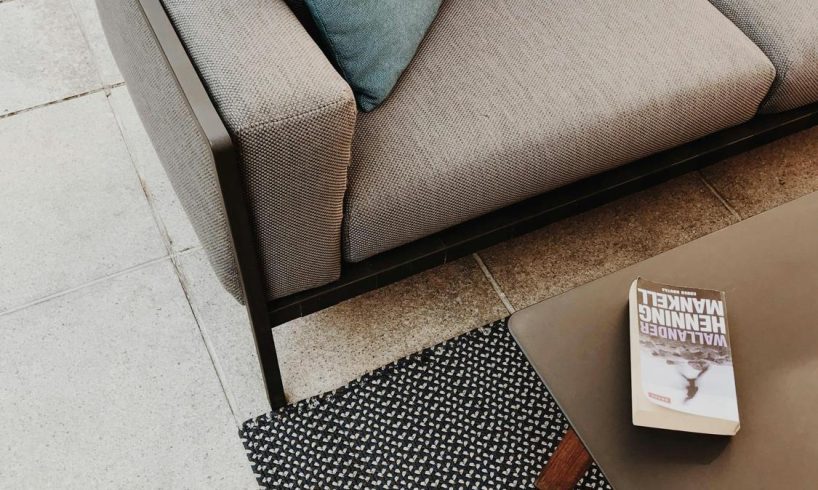
Carpets act as air filters, trapping dirt, dust, and pollutants to improve indoor air quality. Over time, however, these contaminants can cause respiratory problems and allergy symptoms.
Regular cleaning and sanitization will eliminate these harmful bacteria, providing a safer environment for you and your family to thrive in. Here are some of the many health benefits of clean carpets:.
1. Reduces Allergens
Carpets act like filters, trapping dust, allergens and other pollutants that affect indoor air quality. Regular cleaning significantly reduces these contaminants and improves overall indoor health. Allergens such as pet dander, mold spores and pollen are often trapped in the carpet fibers, where they can cause uncomfortable allergic reactions. Regular professional carpet cleaning helps to remove these allergens, improving indoor air quality for allergy sufferers.
Allergens trigger a vigorous immune system response, which results in symptoms such as sneezing, runny nose, itchy eyes and rashes. Allergens are found in a variety of sources, including animal fur, dust mite excretions, mould and mildew spores, bacteria, insect faeces, and a number of chemical substances such as volatile organic compounds (VOCs), which can emit gases and can become embedded in carpet.
Embedded in the carpet, these substances can be inhaled by family members and visitors to the home. Vacuuming can only do so much, since these allergens are so small and can easily become airborne. The best way to minimize allergic reactions is to remove shoes at the front door, vacuum frequently, and use dehumidifiers in rooms with carpeting.
If you or a loved one suffers from allergies, regular professional carpet cleaning is a necessity. Clean carpets eliminate the accumulation of harmful substances that can trigger allergy and asthma symptoms, making the home a healthier environment for all. In addition to removing common allergens, such as pet dander and pollen, deep carpet cleaning eliminates the build-up of irritants that is often caused by normal wear and tear. This process is particularly beneficial for those with chronic respiratory issues such as asthma, as it eliminates the irritants that can trigger episodes of wheezing and coughing.
2. Prevents Mold
Mold and mildew grow in carpets when there’s moisture. This happens when spills aren’t cleaned up, and also from floods or leaking pipes, says Everyday Clean Ltd. These problems cause the growth of fungus in the underlayment, which can lead to respiratory issues and a musty smell throughout the house.
There are several steps that can be taken to prevent this problem, including regularly vacuuming the carpet and using a dehumidifier to reduce humidity levels. In addition, having a full plumbing inspection can help to identify leaks and other problems that could lead to damp carpeting.
Once there’s a problem, it’s important to get the water out as soon as possible, which is why professional extraction services are recommended after flooding or water damage. It can also be helpful to use a dehumidifier and fans to encourage air ventilation, which will help keep the moisture level down and prevent mold from growing under the carpet.
Another way to prevent mold is to have a deodorizer on hand, such as white vinegar or baking soda, which can be used to scrub any affected areas and remove any odors. Alternatively, there are many mold inhibitors on the market that can be applied to carpets to keep them from growing and keeping allergies and other respiratory problems at bay.
Moldy carpets aren’t just a health hazard, but they can be unsightly and make the entire room look rundown and neglected. They can also affect a property’s value, as it can make the space appear dirtier and more disorganized than it really is. The longer a mold problem is ignored, the more it grows, so it’s always best to deal with it early on!
3. Improves Air Quality

Carpets are often used for warmth, comfort and aesthetic appeal in homes and offices. However, they also act as magnets for dirt, dust mites, pet dander, mold spores and bacteria which can cause health issues like allergies, asthma or other respiratory problems if not cleaned regularly.
The fibres in carpet trap these pollutants, preventing them from being circulated in the air. When they are disturbed by footsteps or vacuuming, they can be released back into the air, reducing indoor air quality (IAQ). Regular professional cleaning of your carpets will ensure that they are fully sanitised, eliminating any harmful particles from the environment.
Studies investigating the impact of carpet on indoor air quality and health are limited. Most of them focus on wall-to-wall carpeted environments without specifying the type, size or condition of the carpeting, cleaning methods, maintenance procedures and ventilation rates.
Researchers found that when carpets are properly maintained, they act as a large filter, reducing dust levels by up to 50% when compared to hard floors. Carpets also release some volatile organic compounds (VOCs) from the fibers, backings and installation tapes. When these VOCs are emitted into the air, they can contribute to IAQ problems such as headache, dizziness and respiratory symptoms.
When these contaminants accumulate in the carpet, they can also obstruct the flow of air in the room and increase humidity levels, which leads to unpleasant smells, condensation and mould growth. Regular cleaning of the carpets will keep humidity within normal levels, ensuring good airflow and improving the overall indoor climate. In addition, removing the trapped contaminants in the carpet will eliminate odours and help to improve the air quality in the room.
4. Eliminates Bacteria
Even when carpets appear clean, they can be hiding a secret: an ecosystem of bacteria, mold, dust mites and microorganisms. Soiled carpets provide these organisms with all the elements they need to thrive: moisture, nutrients and a surface on which to grow. Regular vacuuming removes the majority of these elements but not all.
The fungi and bacteria that live in carpet can lead to a number of health issues, including skin irritation, weakened immune systems and stomach infections. In addition, these substances can contribute to a host of respiratory problems, from mild allergies and asthma to the more serious COVID-19 and Respiratory Syncytial Virus (RSV).
Carpet cleaning eliminates these harmful organisms and keeps them from reappearing. When a carpet is cleaned with a disinfectant that is registered with the U.S. Environmental Protection Agency, it can also be sanitized. Using these sanitizers can eliminate many types of bacteria and viruses, including Staphylococcus aureus, Salmonella, E. coli, norovirus and others.
Regular carpet cleaning helps prevent the formation of mildew and moulds that can produce bad odours in homes. Factors such as high humidity, food spills and pet odours can encourage the growth of these organisms on carpet. These odours can also cause respiratory problems, especially in children and the elderly.
The best way to reduce the risk of these organisms is by regularly cleaning your carpeting with a hot water extraction system, which uses powerful drying tools that annihilate moisture. This method can be used to remove spots and stains, and it will also help keep your carpets healthy and smelling fresh. Dirty or stained carpets can make your whole home look dirty and unclean, so it is important to have them regularly cleaned with a professional.
5. Reduces Stress
There is something about clean spaces that evokes feelings of relaxation, peace and wellbeing. This is why it’s important to prioritize carpet cleaning regularly so that you can enjoy the many benefits that come with a healthy home environment.
Dirty and unkempt carpets are breeding grounds for allergens, pollutants and mold, and they can also trap dirt and odors and contribute to poor indoor air quality. Regular carpet cleaning can eliminate these harmful substances, creating a healthier living space for you and your family.
The psychological impact of a tidy environment has been well documented, and it’s not just about feeling good about your surroundings. A clean environment can actually improve your mood and reduce stress levels by lowering cortisol levels, which are the hormones associated with anxiety and depression. Additionally, studies have shown that simply engaging in the physical act of cleaning can decrease stress and promote mental wellness.
It’s no secret that maintaining a clean and healthy home is essential to good health. Regularly vacuuming your carpets is an easy way to keep them in tip-top shape, but it’s also important to schedule professional deep cleaning services on a regular basis. These comprehensive cleaning methods can eliminate accumulated dirt, pollutants and odors that even a thorough vacuuming routine may miss. As a result, they can dramatically improve the overall indoor air quality and contribute to the health and well-being of you and your family.







